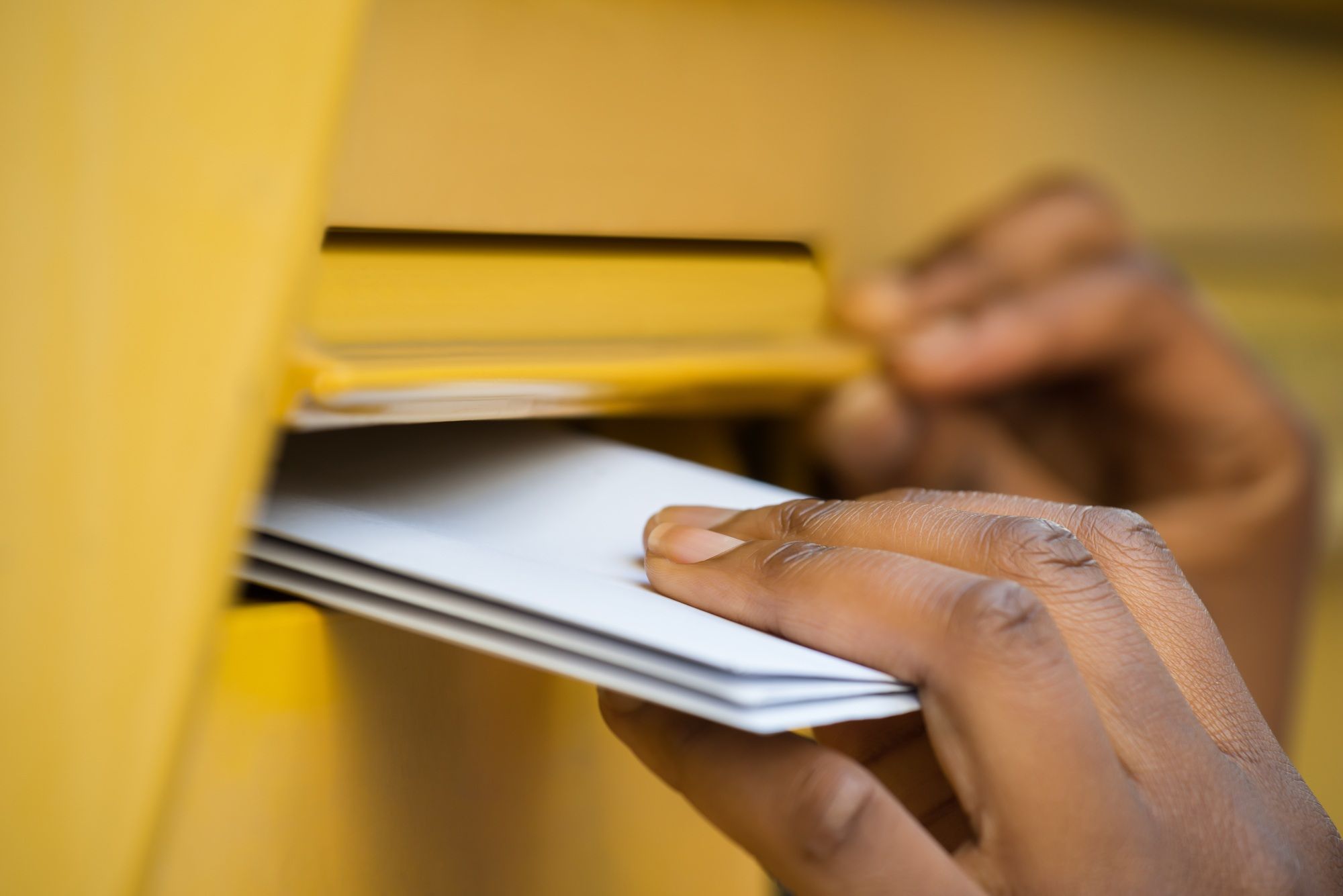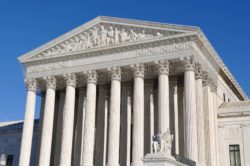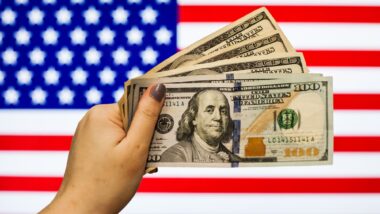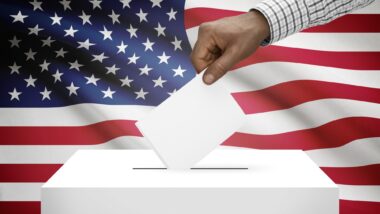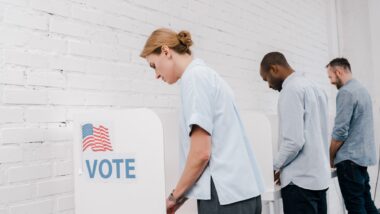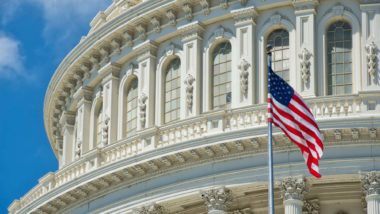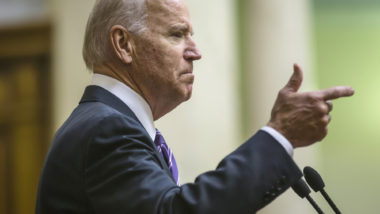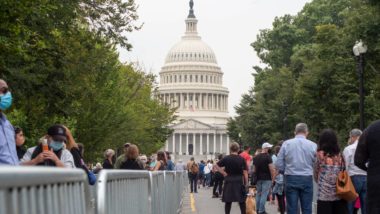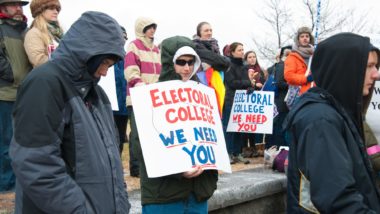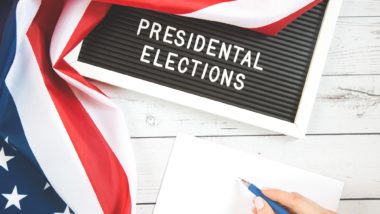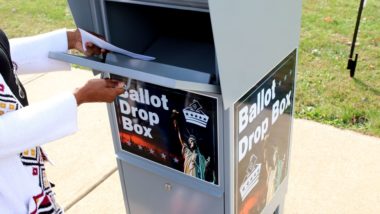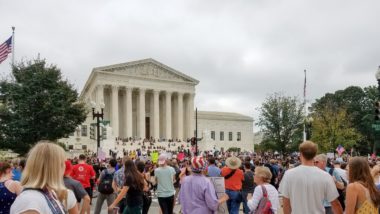Top Class Actions’s website and social media posts use affiliate links. If you make a purchase using such links, we may receive a commission, but it will not result in any additional charges to you. Please review our Affiliate Link Disclosure for more information.
With Election Day approaching, a divided U.S. Supreme Court on Monday denied a request to extend the mail-in ballot deadline for Wisconsin voters.
The Democratic National Committee and Wisconsin State Legislature had applied to have a stay put in place by a lower court vacated.
The plaintiffs maintained the extension was needed in light of slowdowns in mail delivery and the ongoing coronavirus, which they say will prevent some Wisconsin voters from voting in-person on Election Day.
If the deadline extension had been allowed, Wisconsin voters would have had an extra six days to submit their ballot by mail.
The Supreme Court’s decision means any ballot arriving after 8 p.m. on Election Day will not be counted.
As of Tuesday, Wisconsin voters had returned 1.45 million absentee ballots — more than 80% of the requested 1.79 million absentee ballots, The Washington Post reported.
That leaves nearly 327,000 absentee ballots that have yet to be returned in the battleground state.
Under Wisconsin law, voters have until 5 p.m. Thursday to request an absentee ballot, according to The Washington Post — though state officials have warned that the deadline is likely too late for voters to be able to receive and return their ballot before Election Day.
Chief Justice John Roberts wrote the majority opinion, with justices Neil Gorsuch and Brett Kavanaugh concurred.
In his opinion, Chief Justice Roberts called the intervention in state law by the lower court “improper” at this late stage of the election season.
Justice Gorsuch agreed, writing: “Elections must end sometime, a single deadline supplies clear notice, and requiring ballots be in by election day puts all voters on the same footing.”
He went on to point out the state’s election commission has taken several steps to help Wisconsin voters cast a ballot in the face of the pandemic, including early voting options, sending absentee ballot applications to all registered voters and arranging for various drop-off points for those who don’t wish to send the ballots by mail.
“So it’s indisputable that Wisconsin has made considerable efforts to accommodate early voting and respond to COVID,” Justice Gorsuch wrote.
Justices Elena Kagan, Sonia Sotomayor and Stephen Breyer dissented.
In her dissent, Justice Kagan pointed out “Wisconsin is one of the hottest of all COVID hotspots” in the U.S., meaning more people will choose to vote by mail, just as they did during the primaries.
Justice Kagan wrote that while it’s true that “deference is usually due to a legislature’s decisions about how best to manage the COVID pandemic, … the Wisconsin legislature has not for a moment considered whether recent COVID conditions demand changes to the State’s election rules … .”
She pointed out the Wisconsin Legislature hasn’t met since April.
“And if there is one area where deference to legislators should not shade into acquiescence, it is election law,” Justice Kagan wrote. “For in that field politicians’ incentives often conflict with voters’ interests — that is, whenever suppressing votes benefits the lawmakers who make the rules.”
The decision not to allow the ballot extension deadline for Wisconsin voters was not unexpected.
However, Justice Kavanaugh’s concurring opinion sounded alarm bells for some.
Lawyers for Democratic leaders and civil rights said they saw the opinion as public support of President Donald Trump’s unsupported position that any results counted after Election Day would lead to an increased risk of voter fraud, The New York Times reported.
In his concurring opinion, Justice Kavanaugh wrote most states require absentee ballots to be received by Election Day for “important reasons.”
“Those States want to avoid the chaos and suspicions of impropriety that can ensue if thousands of absentee ballots flow in after election day and potentially flip the results of an election,” Justice Kavanaugh wrote. “And those States also want to be able to definitively announce the results of the election on election night, or as soon as possible thereafter.”
“… [C]ounting all the votes quickly can help the State promptly resolve any disputes, address any need for recounts, and begin the process of canvassing and certifying the election results in an expeditious manner. … ‘If the apparent winner the morning after the election ends up losing due to late-arriving ballots, charges of a rigged election could explode,’” he wrote, quoting a blog entry by a professor published by University of Chicago Law Review Online.
Trump tweeted Monday that election officials “must have final total on November 3rd,” saying there could be “big problems” with mail-in ballots, The New York Times reported. Twitter flagged the president’s tweet as “misleading.”
Wendy R. Weiser, director of the Democracy Program at the Brennan Center for Justice, told The New York Times it was clear that the Supreme Court was signaling that the federal courts weren’t going to be a source of voting rights protections ahead of Election Day.
“It’s the unique constitutional role of the courts to protect individual rights like voting rights, and they’re treating it like policy decisions,” she said.
What do you think about the supreme court’s decision not to extend the mail-in ballot deadline for Wisconsin voters? Tell us your thoughts in the comment section below!
Read About More Class Action Lawsuits & Class Action Settlements:

